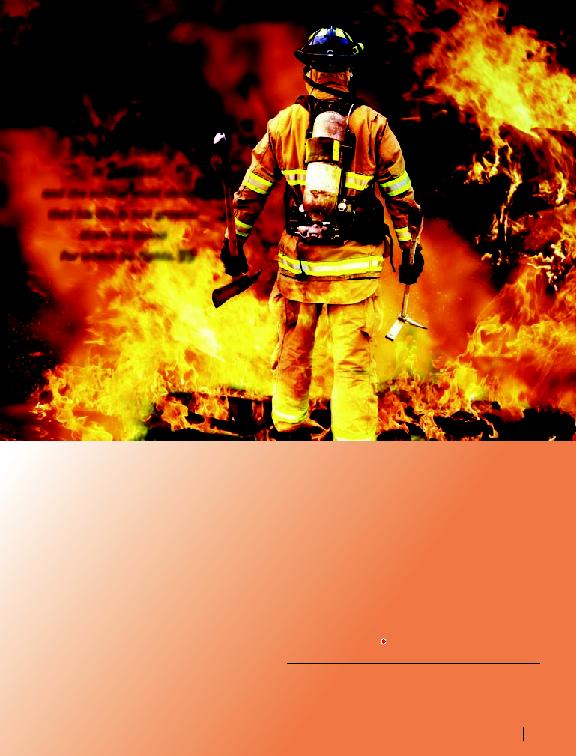
voice can still be heard: "My grace is all you need. My
power works best in weakness." This grace is not for
ones who want to wallow in their current setback in
an effort to elicit sympathy and attention but for those
who want to keep on living and keep on doing and
keep on being all that God wants.
strength so that lifting it is not as difficult. The grace
spoken of here is the strengthening of our spiritual re-
serves, building our soul's muscles so we can take the
next step and the next step.
be known until the battle is hottest, and the soldier
must decide that his life is not greater than the cause
for which he fights, or his safety not more important
man's land. The true measure of parental love cannot be
known until the helpless child requires his parent to deny
every hope, exhaust every resource, risk life itself for
the rescue of that little one. And God's grace cannot
be known more fully until the thing that threatens us
approaches as a hungry lion and we have no place to
run. Our weakness, our absolute helplessness becomes
the stage to display God's enabling grace. So the dying
saint has found. So has the martyr standing before his
executioner. So also the lone believer who confesses
his faith amid humiliation and scorn.